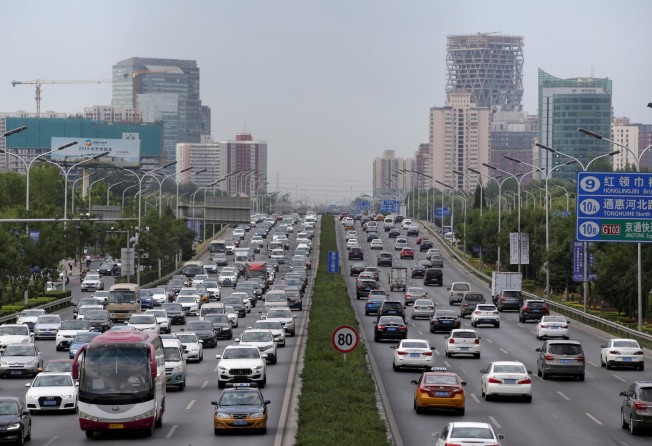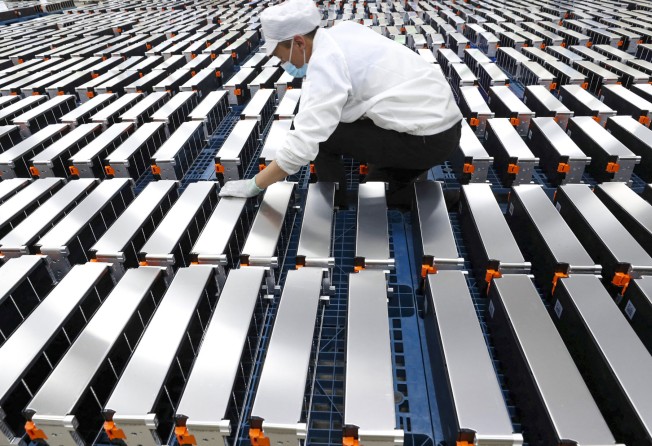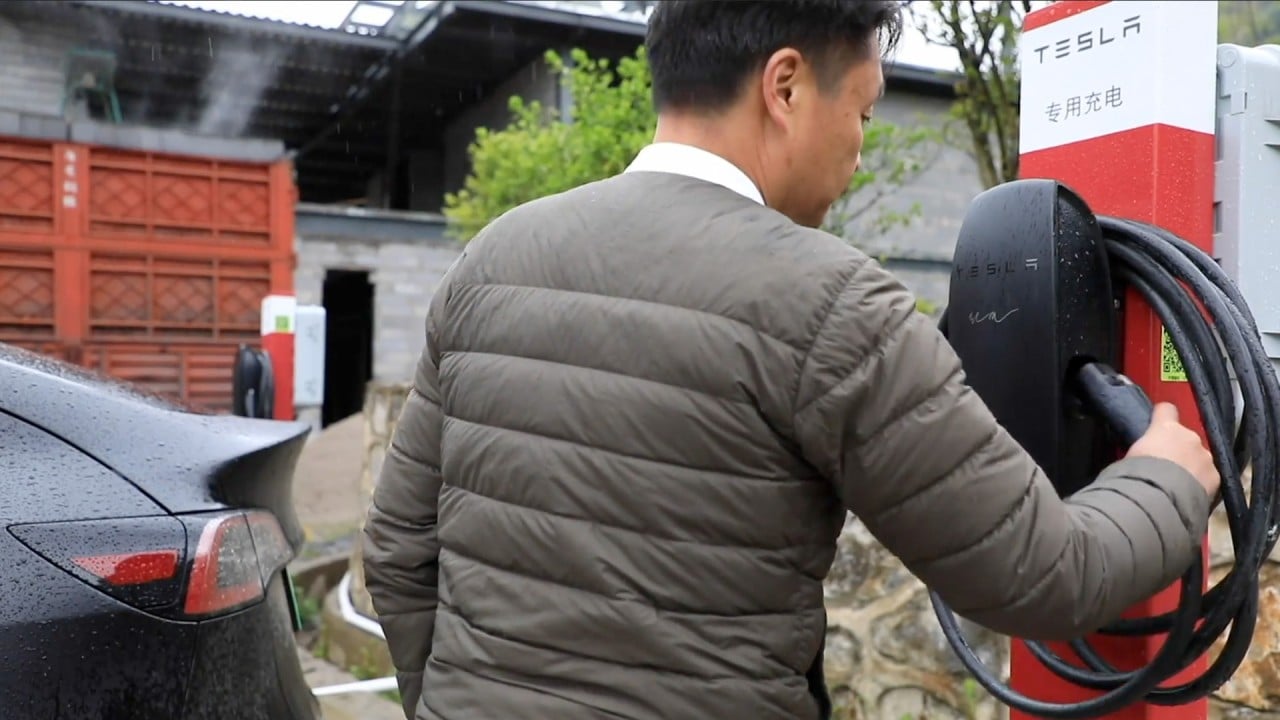
China electric-car makers BYD, Xpeng, Li Auto, Nio stand to benefit as lower loan rates recharge sales after Covid-19 woes
- Credit granted for car purchases in June rose 37.5 per cent to US$8.1 billion compared with a month earlier, according to Hua Chuang Securities
- Interest rates have fallen by half after commercial lenders were told to cut rates to support the industry, according to state-owned bank officials

China’s electric-car market has received a fast recharge over recent weeks as banks dropped lending rates for vehicle loans to boost sales of new-energy vehicles (NEVs).
More young drivers are taking out loans to buy long-coveted cars, making the sector a new bright spot in China’s economy. While overall gross domestic product growth has stalled and the housing market is in distress, the electric-car market looks set for healthy acceleration despite the havoc a two-month lockdown in Shanghai brought to China’s “Motown”.
The Ministry of Commerce, along with 16 other industry regulators, announced last week that it would roll out more incentives, including easy credit extended to car buyers, to bolster the NEV sector, which comprises pure electric, plug-in hybrid and hydrogen fuel-cell cars.
Two officials with state-owned banks said commercial lenders had been told to reduce vehicle loan rates to echo Beijing’s call to support the NEV industry. The move stands to benefit BYD, which just overtook Tesla in terms of units sold, Xpeng, Li Auto, Nio, and even Evergrande, which just launched its first electric car.

Lenders granted as much as 55 billion yuan (US$8.1 billion) in credit for car purchases in June, an increase of 37.5 per cent from a month earlier, according to an estimate by Hua Chuang Securities.
“The amount of car buying on loans is growing fast, and most of the buyers are purchasing new-energy vehicles,” said Tian Maowei, a sales manager at Yiyou Auto Service in Shanghai. “The low lending rates are drawing more young drivers to own an NEV.”
Tian said the market has seen vehicle loan rates slashed in half over the past two months, from around 6 per cent to about 3 per cent.

A Bank of China manager dealing with loan assessment in Tianjin said the sector was one of the two key industries able to access cheap loans. Since June, the bank has reduced lending rates by 30 basis points for NEV builders and supply-chain firms.
Some banks in Foshan, Guangdong province, have also increased the loan-to-value ratio for vehicle loans, allowing buyers to finance 85 per cent of the purchase price this week, up from 80 per cent.
Chinese people used to save cash for years before buying cars. Only in 2014 did significant numbers of mainlanders, particularly those aged between 20 and 40, start to use car financing.
Still, only about 40 per cent of car buyers in China use financing, while 70 per cent in the US do so.
“The central and local governments are determined to reinforce the growth of the NEV sector because it can generate high industrial output and create new jobs,” said Gao Shen, an independent analyst in Shanghai. “An increasing use of auto loans will help the NEV builders and the supply-chain vendors to sustain growth.”
The mainland’s car industry provides one in every six jobs in China’s workforce of 800 million people, according to analyst estimates.
Sales of NEVs in China were expected to jump 84 per cent year on year to 5.5 million units in 2022, according to a forecast by the China Passenger Car Association.
However, the lockdown in Shanghai between April 1 and May 31 dealt a heavy blow, as Covid-19 curbs to contain the spread of Covid-19 strained the supply chain and caused major players to suspend production.
A clutch of local governments, including Beijing, Shanghai, Guangdong and Wuhan, have offered NEV buyers cash subsidies since May to boost sales.
In addition, China is mulling extending a tax exemption on electric-vehicle purchases to help the crucial economic sector regain momentum, the State Council, China’s cabinet, said in late June, adding that doing so could spur consumers to spend a further 200 billion yuan on buying environmentally friendly cars.
Beijing has exempted buyers of NEV cars from paying the 10 per cent purchase tax since September 2014, and had planned to scrap the incentive at the end of this year.
